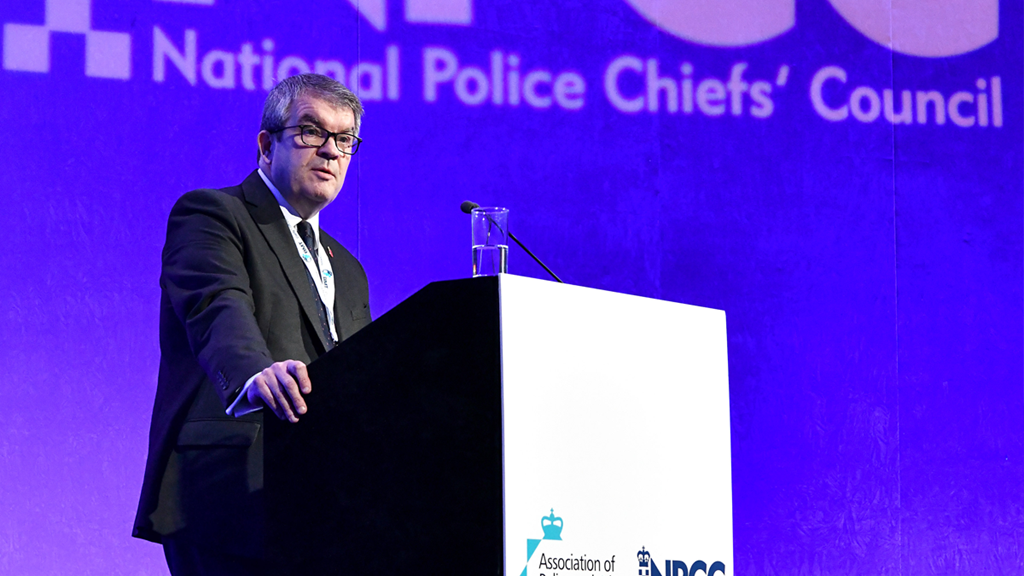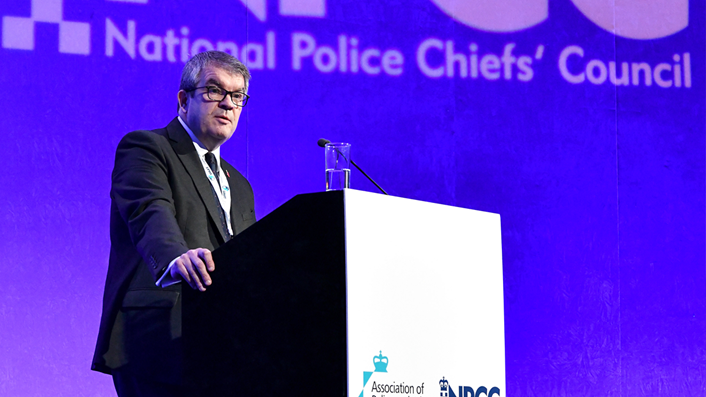
01 Apr 2023
Outgoing NPCC Chair Martin Hewitt reflects on his time at the NPCC
Today is the last of my four years as National Police Chiefs’ Council (NPCC) Chair. I have been reflecting back and looking forward as I prepare to hand over the reins.
It has undoubtedly been a tumultuous period for the countries of the union. As ever, policing has been central to all that’s happened. On a personal level, it’s provided me with some of the proudest moments of my service.
Having the role of NPCC Chair comes with considerable responsibility and privilege to represent the leadership of policing.
I entered this post with a determination to develop the capacity and capability of the NPCC so we were able to make the most of our unique influence. I’m proud that we’ve achieved this ambition and that the newly established Strategic Hub within the NPCC, the first ever chief scientific advisor for policing, and an expanded National Police Coordination Centre (NPoCC) are all integral and valued elements of policing driving our progress for the public.
I think it’s safe to say the NPCC’s coordination role has been thoroughly tested as we’ve worked through the events of the last four years. We’ve had several government changes and a general election, the Brexit transition, the Covid-19 pandemic, Black Lives Matter protests, a range of environmental protest action, deep concerns about the safety of women and girls and the recruitment of 20,000 police officers.
The pandemic was new and uncharted territory for everyone. It demonstrated the effectiveness of national coordination as UK policing worked with consistency and in tandem to protect communities using our 4E’s model (engage, explain, encourage and only enforce as a last resort), despite regulations being different in each of the four countries.
Alongside day-to-day policing in communities, officers and staff across the country delivered the G7 Summit in Cornwall, COP26 in Glasgow, the Commonwealth Games in Birmingham, the funeral of the Duke of Edinburgh, platinum jubilee celebrations, the funeral of HM Queen Elizabeth and the accession of King Charles III. These events show policing at its very best and are the essence of the relationship we have with the public.
As well as the positive, I also reflect on where we must change and develop to do better for our communities.
The revelations regarding the crimes of Couzens and Carrick, subsequent failings in vetting and misconduct process identified by His Majesty’s Inspectorate of Constabulary and Fire Services (HMICFRS) and most recently the findings of the Casey review into the Metropolitan Police Service have raised the biggest test to trust and confidence in policing that I can ever recall.
As police chiefs, we must be able to unequivocally guarantee the standards of behaviour of our staff, we must deal effectively and openly with those who do not meet our high standards, and we must eradicate discriminatory behaviours across the service. Quite rightly we are held to a higher standard because we can deprive people of their liberty and can use reasonable force.
Another vital aspect in rebuilding trust and confidence is delivering our critical mission to keep people safe and feeling safe. Officers and staff take action every day that solves problems in communities, stops bad people and brings people to justice but we do need to solve more crime and get core policing right for the public.
Police chiefs across the country are taking action to raise standards, solve more crime and build public confidence. We’ve asked, and will continue to ask I’m sure, for the government to support us in that focus by addressing the vast widening of the police mission. We want to see officers spending less time consumed by health and social work or bureaucracy that adds no value to victims and more time on core policing.
Progress is being made; the Minister for Crime and Policing and the Home Secretary are looking at crime recording practices and mental health demand, and I am confident the productivity review commissioned by the Government will give further proposals. But this does need to be an ongoing priority and we need to move at pace to remove these barriers to our effectiveness.
I am disappointed the manifesto commitment for a Royal Commission on the criminal justice system has not progressed. An end-to-end review of the system is desperately needed so every element plays its part efficiently and effectively – rebuilding public confidence that justice will be done.
I leave this role with great faith in the thousands of hardworking, committed officers and staff, police leaders who want to lead change and strong national bodies. Policing has a proud history of rising to challenges and of changing, reforming and improving. I have no doubt that it will do so again, working with the public and those who offer challenge, scrutiny and different perspectives.
Contact information
Communications office
By phone: 0800 538 5058
By email: press.office@npcc.police.uk

